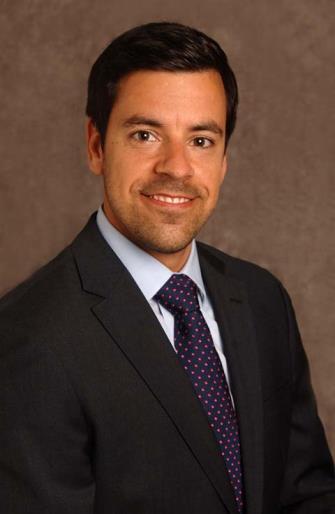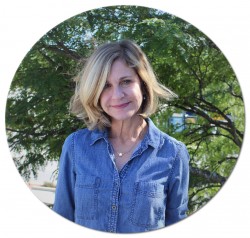catalog
Did You Know?
There are more than 2 million adopted children living in the United States. (US Census 2000)
| Discount Schedule | |
|---|---|
| Purchase Amount | Discount |
| $100-$149 | 10% |
| $150-$199 | 15% |
| $200+ | 20% |
| We offer volume discounts if you purchase more than $100 in a single transaction. Previous purchases cannot be considered. | |
Anxiety and Depression in Adopted Children

Depression, while usually associated with lethargy in adults, often looks like anger in kids. Anxiety typically sounds fearful in adults, but looks more like avoidance, annoyance or off the wall behavior in children.
Specific topics include:
- The incidence of depression and anxiety in our adopted or foster care kids.
- The role of early trauma and how it can play out over time.
- What depression and or anxiety looks like at different ages and stages.
- How understanding our own feelings and reactions as parents can aid in empathizing with our children and help all of us interact more effectively.
- How to help kids develop more coping tools.
- When to consider professional help.
Please join us on Twitter using #ALPMentalHealth
This webinar was offered live April 7, 2016.
Once purchased, you will launch the recorded webinar from the link in your account page.
PLEASE NOTE: Your certificate will be available upon successful completion of a post test. The audio for the recorded webinar can be heard through your computer speakers. We recommend external speakers or headphones. There are no refunds or exchanges for the webinar once you have purchased it.
PLEASE NOTE: Your certificate will be available upon successful completion of a post test. The audio for the recorded webinar can be heard through your computer speakers. We recommend external speakers or headphones. There are no refunds or exchanges for the webinar once you have purchased it.

 Vasco Lopes, PsyD, is an Assistant Professor at Columbia University Medical Center and a senior clinical psychologist at Columbia University Clinic for Anxiety and Related Disorders (CUCARD). Dr. Lopes specializes in the evaluation and treatment of children and adolescents with attention-deficit hyperactivity disorder (ADHD), disruptive behaviors, aggression, severe temper tantrums, anxiety, and emotional dysregulation. He has experience treating children through various modes of intervention including parent training, teacher behavioral consultation, and cognitive behavior therapy. Dr. Lopes typically treats children with a multi-modal approach- focusing on giving parents and teachers the tools needed to help their child thrive and children the coping skills needed to best manage their behavior and emotions.
Dr. Lopes earned his doctorate in school psychology from St. John's University in 2011 and completed an APA-approved pre-doctoral internship at Andrus, a day and residential treatment center for children with severe emotional disturbances. Dr. Lopes was part of a team charged with developing and leading the first school-wide positive behavior intervention and supports (PBIS) program at Andrus. Dr. Lopes went on to complete a clinical and research fellowship in the Pediatric Emotion Regulation Laboratory (PERL) at Fordham University where he developed a specialization in diagnosing and treating children with severe emotional dysregulation.
Most recently, Dr. Lopes has served as a staff psychologist at the Child Mind Institute, in their ADHD and Disruptive Behavior Disorder Center. Dr. Lopes specialized in evidence-based cognitive-behavioral treatments for disruptive behavior disorder and severe emotional dysregulation and is certified in Parent Management Training (PMT) and Parent-Child Interaction Therapy (PCIT).
Vasco Lopes, PsyD, is an Assistant Professor at Columbia University Medical Center and a senior clinical psychologist at Columbia University Clinic for Anxiety and Related Disorders (CUCARD). Dr. Lopes specializes in the evaluation and treatment of children and adolescents with attention-deficit hyperactivity disorder (ADHD), disruptive behaviors, aggression, severe temper tantrums, anxiety, and emotional dysregulation. He has experience treating children through various modes of intervention including parent training, teacher behavioral consultation, and cognitive behavior therapy. Dr. Lopes typically treats children with a multi-modal approach- focusing on giving parents and teachers the tools needed to help their child thrive and children the coping skills needed to best manage their behavior and emotions.
Dr. Lopes earned his doctorate in school psychology from St. John's University in 2011 and completed an APA-approved pre-doctoral internship at Andrus, a day and residential treatment center for children with severe emotional disturbances. Dr. Lopes was part of a team charged with developing and leading the first school-wide positive behavior intervention and supports (PBIS) program at Andrus. Dr. Lopes went on to complete a clinical and research fellowship in the Pediatric Emotion Regulation Laboratory (PERL) at Fordham University where he developed a specialization in diagnosing and treating children with severe emotional dysregulation.
Most recently, Dr. Lopes has served as a staff psychologist at the Child Mind Institute, in their ADHD and Disruptive Behavior Disorder Center. Dr. Lopes specialized in evidence-based cognitive-behavioral treatments for disruptive behavior disorder and severe emotional dysregulation and is certified in Parent Management Training (PMT) and Parent-Child Interaction Therapy (PCIT).
 Peggy is a licensed clinical social worker, addictions counselor, and parent educator. She has been with Erika's Lighthouse, a not-for-profit dedicated to educating and raising awareness about adolescent depression, encouraging good mental health and breaking down the stigma surrounding mental health issues, since October, 2006. Peggy provides consultation and training to schools, parents and health professionals to implement depression and mental health education programs which raise awareness of childhood and adolescent depression and help guide young people to good mental health. Peggy received her Masters from the University of Chicago in Social Service Administration and her Bachelors of Arts in Education from Northwestern University.
Peggy is a licensed clinical social worker, addictions counselor, and parent educator. She has been with Erika's Lighthouse, a not-for-profit dedicated to educating and raising awareness about adolescent depression, encouraging good mental health and breaking down the stigma surrounding mental health issues, since October, 2006. Peggy provides consultation and training to schools, parents and health professionals to implement depression and mental health education programs which raise awareness of childhood and adolescent depression and help guide young people to good mental health. Peggy received her Masters from the University of Chicago in Social Service Administration and her Bachelors of Arts in Education from Northwestern University.





